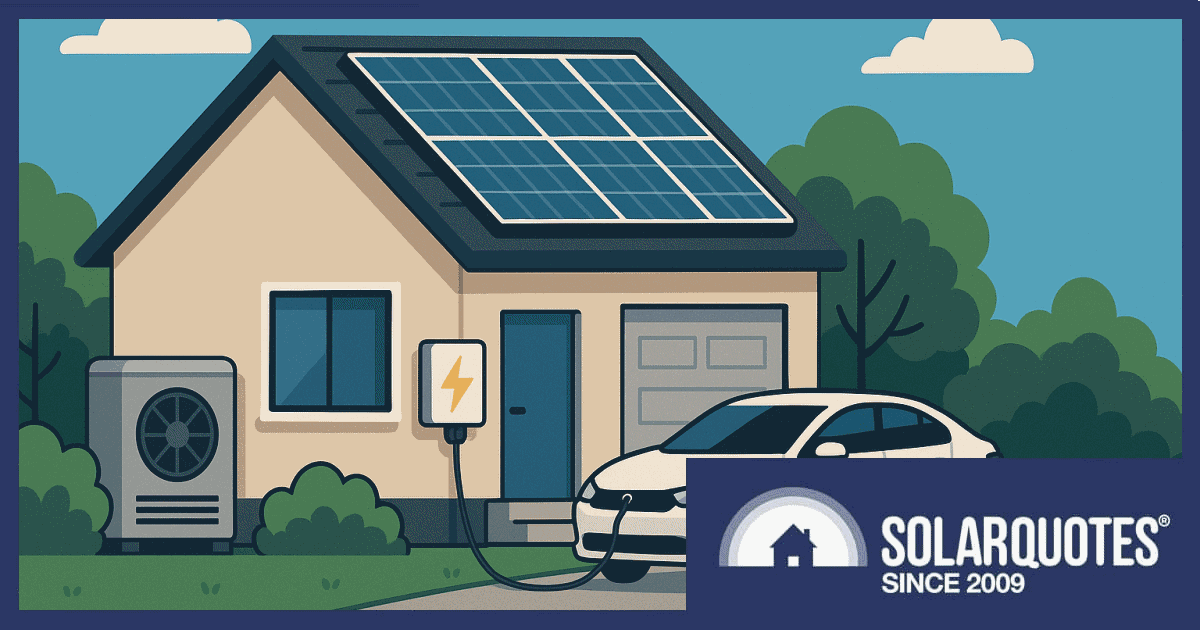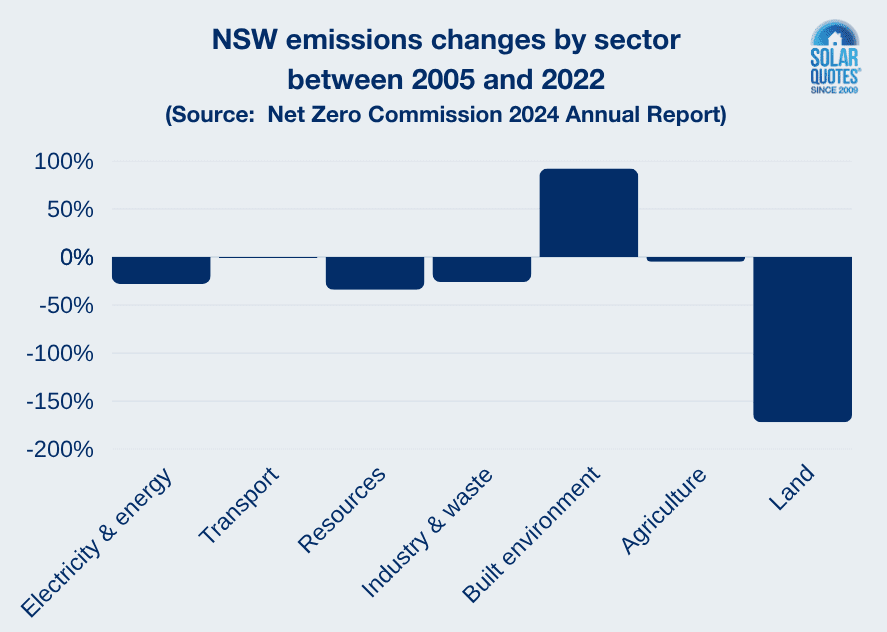As New South Wales faces potentially missing its emissions targets, increased effort is needed across the board — including the built environment.
The Net Zero Commission is an independent body providing expert advice and recommendations on NSW’s approach to addressing climate change. The Commission’s 2024 Annual Report indicated the state needs to get cracking, otherwise NSW may not only fail to reach net zero by 2050, but also nearer-term emissions reduction targets; which are:
- a 50% reduction on 2005 emissions by 2030.
- a 70% reduction on 2005 emissions by 2035.
In April this year, the Commission kicked off a consultation on how to accelerate progress, with feedback provided to help shape its work plan and inform policy recommendations. The consultation invited feedback on a range of topics, including:
- electricity and energy
- transport
- agriculture and land
- industry and waste
- resources
- built environment
- adaptation
Varying rates of progress on emissions reduction has been made in most sectors since 2005, but the built environment (all homes, buildings and infrastructure) saw a massive increase — nearly double over the same period. This was largely due to fossil fuel use: mainly gas for hot water, heating and cooking; but also from leaking refrigerant gases.
While the electricity and energy sector is currently the largest source of emissions in NSW, the ongoing increase of renewables in the grid is expected to contribute the largest proportion of emissions reductions in decade ahead. But significant decarbonisation efforts in the electricity and energy sector will still be required to meet the state’s 2030 and 2035 targets; particularly given a shift to electrification in others such as transport (e.g. electric vehicles).
Another is the built environment. While it accounted for 6% of NSW emissions in 2022 — a bit player — it’s one that obviously needs some special attention given its increasing impact. Emissions in the built environment sector increased from 4.0 million tonnes (Mt) of carbon dioxide equivalent (CO2e) in 2005 to 7.7 Mt CO2e in 2022.
Here’s what a couple of organisations recommended in their submissions on the issue of built environment.
The IEEFA Says …
The Institute for Energy Economics and Financial Analysis (IEEFA) notes more than 20,000 new dwellings in NSW connected to the gas distribution network just last year.
“NSW households who install new gas appliances today may be locking in up to 20 years of fossil gas demand, and emissions,” says the organisation.
The IEFFA recommends:
- Requiring new homes built in NSW to be all-electric.
- Requiring gas appliances and resistive electric appliances at end-of-life to be replaced with efficient electric alternatives
- Updating energy upgrade schemes and rental minimum standards to include a broader range of thermal efficiency upgrades of homes.
- Developing a plan to “efficiently and equitably” phase-down gas networks.
Another issue with built environment is emissions from leaking gas refrigerants; including some energy-efficient appliances. The IEEFA has recommended requiring heat pump hot water systems (HPHWS) and reverse-cycle air conditioners to use low global warming potential (GWP) refrigerants to be eligible for rebates.
The submission acknowledges electrification won’t be a simple task.
“Electrification raises a range of equity issues, such as customers remaining on the gas network being more exposed to the cost of maintaining it.”
The full IEEFA submission (covering all sectors mentioned above) can be viewed here.
The Climate Council Says …
Likewise, the Climate Council also wants to see a focus on electrification in the built environment; recommending:
- All-electric new homes and commercial buildings.
- Mandating electric replacements when gas appliances reach their end-of-life.
- Setting energy performance standards for existing residential properties, including rentals.
- Introducing mandatory disclosure of home energy performance.
The Council says getting gas out of NSW homes and businesses will save households and business owners significant amounts of money.
On a related note, the organisation also wants to see more support for solar and batteries, including:
- Expanding initiatives to install solar and batteries on public housing in the state.
- Scaling up innovative solutions for groups who can’t install their own solar and energy storage.
- Supporting commercial and industrial facilities to install solar and battery systems.
- Collaborating with other governments to require solar panels on all new homes across Australia.
The full Climate Council submission can be viewed here.
Submissions for the NSW Net Zero Commission consultation closed earlier this month and late last week all submissions were published on the Net Zero Commission website.
Across the border in Victoria, there are already plans in place to nudge (push) home owners to electrification under changes to come into effect in 2027.



 RSS - Posts
RSS - Posts



Batteries on homes and businesses really has to be a big part of the answer. All the PV, electrification and load shifting you like only covers about half an average home’s dependence on the grid and the remaining part is in the fossil-heavy evening. Batteries to the rescue (my 32kWh is being wired up as I write (very exciting)).